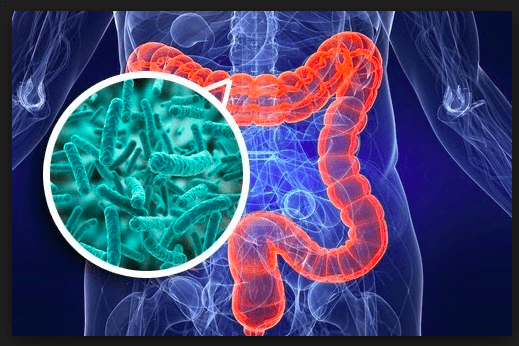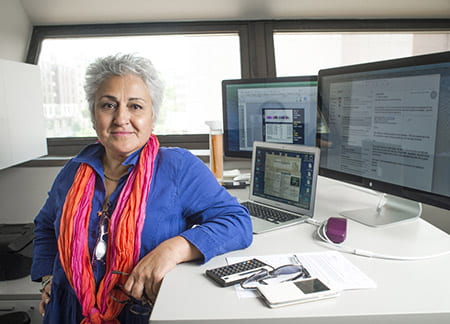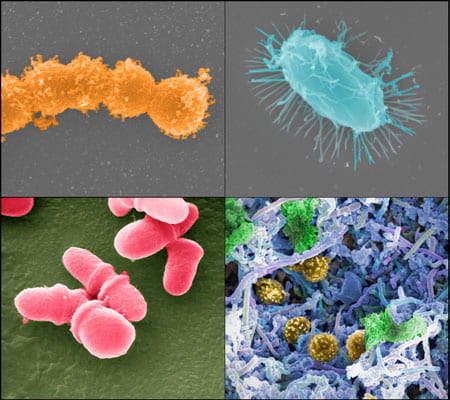Dr. Jason Crowell talks with Prof. Haydeh Payami, Professor of Neurology and Genetics at the University of Alabama at Birmingham, about how the gut microbiome may play a role in Parkinson disease according to metagenomics. Read the associated article in Nature Communications.
A Microbial Link to Parkinson’s Disease
Haydeh Payami helped uncover the genetic basis of Parkinson’s disease. Now, she hopes to find new ways to treat the disease by studying the gut microbiome.
At the age of 19, Haydeh Payami, now a geneticist at the University of Alabama, Birmingham, left Iran and came to the United States with two suitcases and a fascination with genetics. In the following years, she pursued a doctoral degree in genetics and trailblazed her path as a researcher. Today, Payami leads a team of motivated researchers and combines her love of genetics with the microbial world to find ways to prevent and treat Parkinson’s disease.
Top 25 Life and Biological Sciences Articles of 2022
We are pleased to share with you the 25 most downloaded Nature Communications articles* in the life and biological sciences published in 2022. (Please note we have a separate collection on the Top 25 COVID-19 papers.) Featuring authors from around the world, these papers highlight valuable research from an international community.
New study puts gut microbiome at the center of Parkinson’s disease pathogenesis

The study, utilizing the relatively new field of metagenomics, demonstrated an imbalance in the gut microbiome of patients with Parkinson’s disease.
New research from the University of Alabama at Birmingham says the gut microbiome is involved in multiple pathways in the pathogenesis of Parkinson’s disease. The findings, published in Nature Communications, show a wide imbalance in microbiome composition in persons with Parkinson’s disease. The study is the largest microbiome study conducted at the highest resolution.
The investigators employed metagenomics, the study of genetic material recovered directly from the stool microbiome of persons with PD and neurologically healthy control subjects.
“The primary aim of this study was to generate a full, unaltered view of the imbalance in PD gut microbiome,” said Haydeh Payami, Ph.D., professor in the Marnix E. Heersink School of Medicine Department of Neurology and senior author on the study.
UAB investigator funded as part of innovative Parkinson’s disease research network
Haydeh Payami, Ph.D., a professor in the Department of Neurology, Heersink School of Medicine at the University of Alabama at Birmingham, has been funded as part of the second round of research grants from a groundbreaking initiative in Parkinson’s disease, the Aligning Science Across Parkinson’s Collaborative Research Network.
ASAP is a basic research initiative fostering collaboration and resources to better understand the underlying causes of Parkinson’s disease. The second round of funding, announced Oct. 18, 2021, went to 14 teams with ties to 10 different countries. The teams are made up of 54 co‑investigators at 34 different research institutions. The grants total $132 million and are issued by ASAP’s implementation partner, The Michael J. Fox Foundation for Parkinson’s Research.
(Read more…)
Study outlines genetic factors involved in shaping the human gut microbiome

Human genes have an impact on shaping our gut ecosystem. A large, international study by the MiBioGen consortium, led by the University Medical Center Groningen, analyzed the common genetic factors that influence the composition of the human gut microbiome in more than 18,000 people. The results were published Jan. 18 in the leading scientific magazine Nature Genetics. Haydeh Payami, Ph.D., professor in the Department of Neurology, University of Alabama at Birmingham, and Zachary Wallen, a postdoctoral fellow in the Payami laboratory, were collaborating authors on the study.
The Parkinson’s disease gut has an overabundance of opportunistic pathogens
Parkinson’s disease is a common, progressive and debilitating neurodegenerative disease. It currently cannot be prevented or cured.
In 2003, Heiko Braak proposed that non-inherited forms of PD are caused by a pathogen in the gut. He hypothesized that the pathogen could pass through the intestinal mucosal barrier and spread to the brain through the nervous system. Up to now, there has been no evidence of a specific pathogen that may trigger PD.
Now Haydeh Payami, Ph.D., professor of neurology at the University of Alabama at Birmingham, and colleagues report for the first time a significant overabundance of a cluster of opportunistic pathogens in the guts of persons with PD, compared to control subjects.
Seeking a “missing link” between genes and environment in Parkinson’s disease
There is a missing link between genetic and environmental causes of Parkinson’s disease, speculate scientists at the University of Alabama at Birmingham, and armed with a four-year, $2.5 million grant from the U.S. Army Medical Research and Materiel Command, they intend to find it.
Gut microbiome dysbiosis: The chicken/egg scenario

Just ten years ago the human body was assumed to be largely sterile. Today, molecular technologies have revealed complex microbial ecosystems in nearly every human organ/niche. These microbiome communities persist in blood, tissue, the brain, the liver, the amniotic fluid, the placenta and beyond.
UAB study shows link between microbiome in the gut and Parkinson’s

There is growing evidence showing a connection between Parkinson’s disease — a neurodegenerative condition — and the composition of the microbiome of the gut. A new study from researchers at the University of Alabama at Birmingham shows that Parkinson’s disease, and medications to treat Parkinson’s, have distinct effects on the composition of the trillions of bacteria that make up the gut microbiome.
The findings were published in February in Movement Disorders, the journal of the International Parkinson and Movement Disorder Society.
(Read more…)



